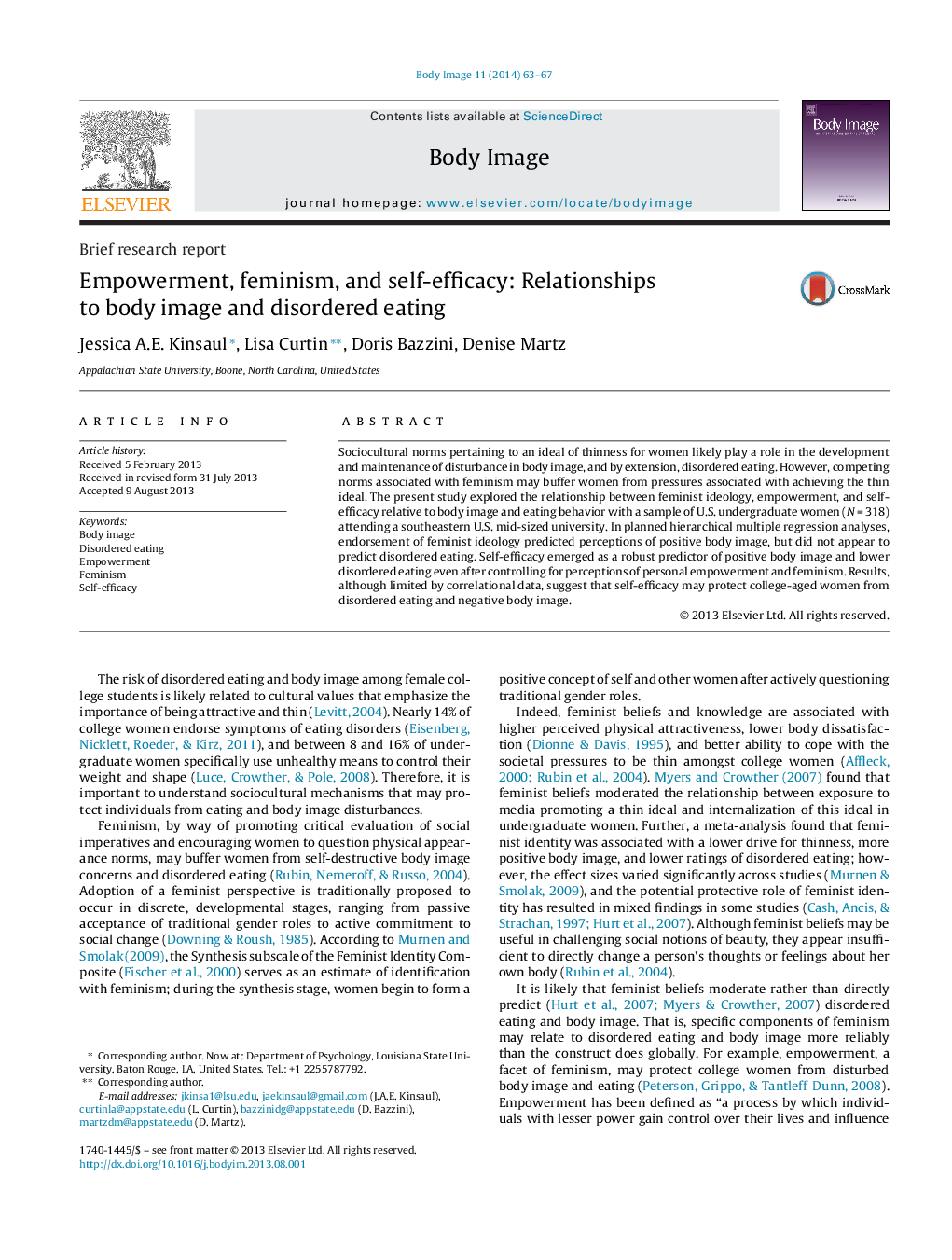| Article ID | Journal | Published Year | Pages | File Type |
|---|---|---|---|---|
| 902858 | Body Image | 2014 | 5 Pages |
•Feminist ideology is related to positive body image but not disordered eating.•Empowerment is also predictive of body image and eating behavior.•Self-efficacy is a robust predictor of body image and eating behavior.
Sociocultural norms pertaining to an ideal of thinness for women likely play a role in the development and maintenance of disturbance in body image, and by extension, disordered eating. However, competing norms associated with feminism may buffer women from pressures associated with achieving the thin ideal. The present study explored the relationship between feminist ideology, empowerment, and self-efficacy relative to body image and eating behavior with a sample of U.S. undergraduate women (N = 318) attending a southeastern U.S. mid-sized university. In planned hierarchical multiple regression analyses, endorsement of feminist ideology predicted perceptions of positive body image, but did not appear to predict disordered eating. Self-efficacy emerged as a robust predictor of positive body image and lower disordered eating even after controlling for perceptions of personal empowerment and feminism. Results, although limited by correlational data, suggest that self-efficacy may protect college-aged women from disordered eating and negative body image.
